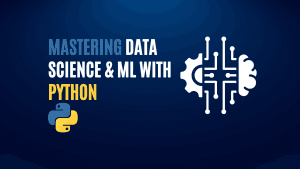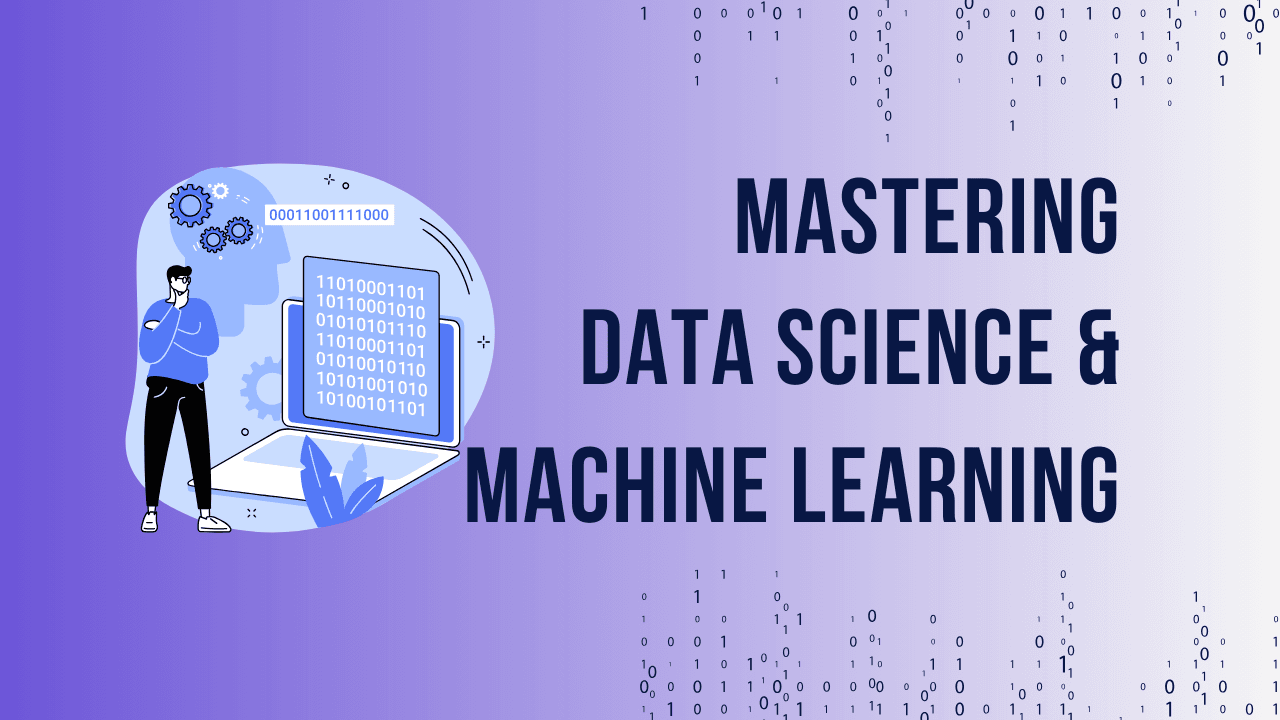Table of Contents
Toggle1. Introduction to FAANG Data Science Interviews
FAANG—an acronym that stands for Facebook (now Meta), Amazon, Apple, Netflix, and Google (now Alphabet)—represents some of the most powerful tech companies in the world. As a result, landing a job in one of these companies is a dream for many data scientists. In FAANG, data science plays a critical role, helping to drive product innovations, enhance user experiences, and streamline operations. A data scientist’s work involves analyzing vast datasets to extract meaningful insights, which can shape business decisions and strategies.
Ready to take you Data Science and Machine Learning skills to the next level? Check out our comprehensive Mastering Data Science and ML with Python course.
2. Overview of the FAANG Interview Process
The FAANG interview process for data science positions is rigorous and typically includes multiple stages. Candidates go through initial phone screenings, technical interviews, and possibly a final onsite interview. While the specific steps may vary depending on the company, candidates must be prepared for the following:
- Phone Screen: This initial stage usually covers high-level technical and behavioral questions.
- Technical Rounds: These include coding challenges, data analysis problems, and machine learning questions.
- Onsite Interviews: Candidates may face several interview rounds, including problem-solving and case studies, designed to test both technical and soft skills.
3. Key Competencies Evaluated in FAANG Interviews
FAANG companies look for several critical skills in data science candidates:
- Programming and Technical Skills: Strong knowledge of programming languages like Python, R, and SQL is essential.
- Problem-Solving and Analytical Thinking: You’ll need to demonstrate your ability to break down complex problems and derive solutions.
- Communication and Teamwork: The ability to explain your findings and collaborate with cross-functional teams is highly valued in these interviews.
4. Preparing for Data Science Interviews at FAANG
When preparing for FAANG data science interviews, thorough research is crucial. Each FAANG company has a unique culture and set of expectations, so take the time to understand the specific challenges and missions of the company you’re applying to. Additionally, focus on crafting a tailored resume and portfolio showcasing your experience with real-world projects, especially those involving large-scale datasets.
Ready to take you Data Science and Machine Learning skills to the next level? Check out our comprehensive Mastering Data Science and ML with Python course.
5. Important Data Science Concepts to Master
To ace a FAANG data science interview, it’s essential to master the following concepts:
- Big Data and Data Mining: Be ready to discuss your experience handling large datasets, extracting meaningful information, and generating reports.
- Machine Learning and AI: FAANG companies expect candidates to have hands-on experience in machine learning algorithms, such as decision trees, neural networks, and clustering methods.
- Statistical Methods: Knowledge of statistics, including hypothesis testing, regression, and probability, is crucial to answering both theoretical and applied questions.
6. Data Structures and Algorithms in FAANG Interviews
FAANG companies heavily test candidates on data structures and algorithms, as these are core to building efficient solutions.
- Commonly Asked Algorithms: Sorting algorithms (merge sort, quick sort), search algorithms (binary search), and graph algorithms are frequent interview topics.
- Importance of Data Structures: Understanding arrays, linked lists, hash maps, and trees will help you address questions on optimizing time and space complexity.
7. Programming Languages for FAANG Data Science Roles
In FAANG data science interviews, proficiency in specific programming languages can make a difference. Python is the most popular choice for data science due to its simplicity and the vast array of libraries available.
- Python: Focus on libraries like NumPy, pandas, and scikit-learn.
- R: While less common than Python, R is still used in statistical modeling and data visualization.
- SQL: Many data science interviews at FAANG involve SQL, so you must be comfortable writing and optimizing queries.
8. Machine Learning and AI Questions in FAANG Interviews
Machine learning is a vital part of data science at FAANG. You’ll be asked to explain key machine learning algorithms and their real-world applications. For example:
- Supervised Learning: Be ready to discuss linear regression, logistic regression, and support vector machines.
- Unsupervised Learning: Questions about clustering techniques (K-means, hierarchical clustering) are common.
9. Statistical and Probability Questions
FAANG interviews often include questions on statistics and probability to assess a candidate’s ability to understand data distributions and randomness. Expect questions like:
- How do you calculate the p-value in hypothesis testing?
- What is the difference between type I and type II errors?
- How do you interpret a probability density function?
10. Data Manipulation and SQL in FAANG Interviews
SQL is a must-know skill for data science interviews at FAANG. Candidates may be asked to write complex queries, perform joins, and aggregate data. Here’s a common SQL challenge:
- Example: “Write a query to find the top 5 products with the highest sales in the last year.”
Ready to take you Data Science and Machine Learning skills to the next level? Check out our comprehensive Mastering Data Science and ML with Python course.
11. Behavioral and Situational Interview Questions
Behavioral questions help FAANG interviewers assess how well you’ll fit into their team culture. Using the STAR method (Situation, Task, Action, Result) is an excellent way to frame your answers. Some examples of common behavioral questions include:
- Tell me about a time when you faced a significant challenge and how you overcame it.
- How do you handle working under pressure with tight deadlines?
12. Case Studies and Business Problems
FAANG interviews often involve case studies where you’re presented with a business problem and asked to analyze it. For example, you might be given a scenario where user engagement has dropped by 15%, and you’re tasked with identifying the cause and proposing a solution.
13. Conclusion and Final Tips for Success
Successfully landing a data science position at a FAANG company requires rigorous preparation. Focus on mastering core concepts in data science, sharpening your programming and problem-solving skills, and practicing for both technical and behavioral interviews. With persistence and the right strategy, you’ll be well on your way to achieving your goal.
Frequently Asked Questions
What is the most common data science interview question asked by FAANG?
- One of the most common questions is, “Explain a machine learning project you’ve worked on and how you implemented it.”
How can I prepare for FAANG data science interviews?
- Begin by reviewing fundamental data science concepts, practicing coding challenges, and conducting mock interviews.
What programming languages should I focus on for FAANG data science roles?
- Focus on Python, R
Ready to take you Data Science and Machine Learning skills to the next level? Check out our comprehensive Mastering Data Science and ML with Python course.



